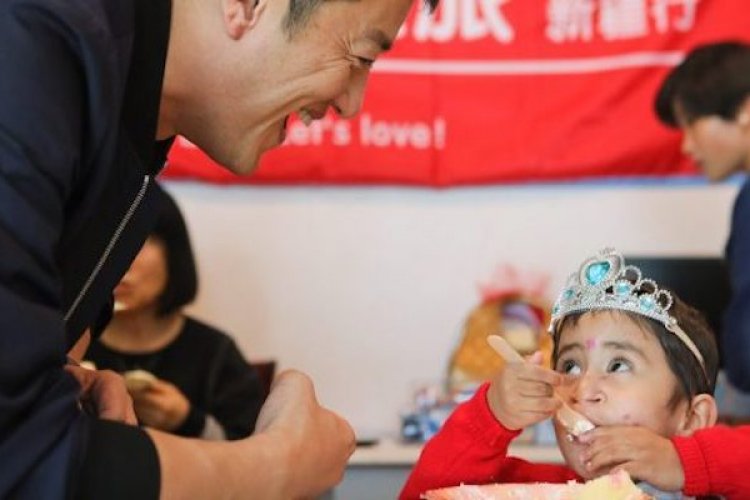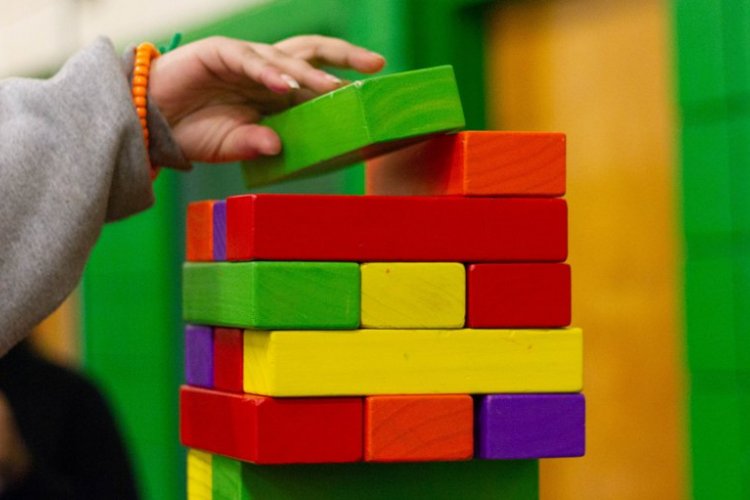Dear Mr Kronick,
The Germosnian Book "how i raise Kids to become Smart, handsome/beautiful, strong and cool" is available now and you can buy it from me......
The Lighter Side of China: Raising Children
It was 9pm on December 1, 1996 when I received a call from my wife. “My water broke and I am on my way to the hospital,” she said. My heart started racing. The moment of truth had arrived – I was about to become a true adult. The only problem was that my wife was in Taipei and I was in Beijing. I hurried to book the first flight out of Beijing in the morning to Hong Kong and then onwards to Taiwan. “Please try to wait for my arrival,” I begged. I feared spending the rest of my life regretting that I was not present when my daughter arrived.
The next morning, all flights took off on schedule. When I landed in Hong Kong, I learned from my brother-in-law that my wife had delivered a healthy baby girl. By 2.30pm on December 2, I was racing from Taoyuan Airport to Zhongshan Hospital. I could not wait to see my wife and new child. Upon arriving at the hospital, I ran to the nursery window. Among the 20 or so infants in baby baskets, there she was, wrapped in a pink blanket. She stood out slightly because she seemed to be the only mixed-blood child in the group. I smiled and waved – a nurse raised the baby so I could see her.
And then I felt a tap on my shoulder. “Excuse me, buddy, but that’s my child,” said an American guy behind me. Embarrassed, I responded, “Oops, very cute,” and proceeded to scan the names printed on the other baby baskets. Near the end of the row was my daughter, Jacquelin, a healthy baby with a full head of hair, strong lungs and of course, cute as a bug. I then proceeded to see how my wife was doing. There and then, at the age of 34, I began the next chapter of my life: parent.
Fast forward 15 years and my daughter, now standing a few inches taller than me, quips, “Mom is nowhere near a tiger mother.” We are discussing Amy Chua’s recent book, Battle Hymn of the Tiger Mother, and comparing Western and Chinese ways of raising children. Indeed, my wife is certainly not overly strict. In fact, as I write this, we have nine children in our house sleeping overnight for my son’s birthday party. In her book, Amy Chua writes about sleepovers as foolish. I actually happen to agree in large part about sleepovers, where it seems the goal is for kids to stay up as late as possible, eat as much junk food as one can take in, watch as many movies as will make a person dizzy, and talk really loudly. Certainly my wife is much more flexible in such instances.
Yet when it comes to homework, watch out. Come Monday evening, my wife’s kitty-cat weekend persona can morph into a ferocious Bengal tiger. Me, I suppose I would qualify as a “panda father.” Not so much because I am cute and cuddly but because, as my wife reminds me, I am pudgy and can eat and sleep like a professional.
In my view, no one can really teach you about parenthood. “All children are different and require their own unique approach,” I explained to my mom as we talked about childrearing one afternoon. There are thousands of parenting advice books, of course, which can be useful, but I believe no single methodology is “the right way” to raise a child. However, Amy Chua and I have something in common – we’re both well aware of cultural differences in parenting. She is the daughter of a Chinese immigrant in the US, married to a Western guy and raising her mixed-blood children in the USA. I am a Western guy, married to a Chinese woman, raising our mixed-blood children in China.
The point is that while I care not to generalize, I have definitely been surprised over the years by Chinese childrearing practices that bump up against Western assumptions about how to bring up children.
The first difference can be described as “the care and handling of a newborn child.” As a new father, I soon noticed that my daughter was never allowed to touch the ground. I kid you not! As she was passed between my mother-in-law, our ayi and my wife, I wondered if and when Jacquelin would ever make contact with the ground we walk on. I used to joke around by pretending to place her onto the floor, but I was never allowed to actually go through with it. We even bought blankets to cover the floor, as well as the “hangythingy” mobiles she could play with while lying on her back. More than six months passed, and Jacquelin didn’t once touch down. Same for my son. The rule was: two arms, four eyes on them at all times.
We also used to pat our children to sleep every night, which differed from the common Western practice of letting children cry themselves to sleep. My father, a pediatrician, once chatted with my wife for several hours one evening while my daughter screamed at top of her lungs in the background. My dad was teaching my wife how to help children fall asleep on their own, but my daughter wasn’t playing along. After around two hours of Jacquelin’s wailing, my wife gave in. “I can’t do this,” she said and rushed in to rock our daughter to sleep.
Views on education also differ widely. When my daughter was in the first grade at the Fang Cao Di School, one Chinese mother asked the teachers, “Why is there not more homework?” I have heard Western parents expressing disapproval of children being assigned too much homework and given too much pressure to achieve academically. I must say that I have never heard a Chinese parent make a similar complaint.
Finally, there are differences in expectations of children later in life, i.e. their family responsibilities. More so than their Western counterparts, Chinese children are often expected to support their parents once they begin to earn a living. “Mom, don’t worry – I will buy you a fancy car when you are older,” said my boy to my wife during one family conversation about the future. “Dad, I promise to put you into a nice nursing home,” offered my daughter.
I genuinely think all parents want their children to succeed – and that no single race, religion or people can claim the secret formula for success. But if anyone knows how to get my daughter out of the house when asked the first time, I am all ears. In all fairness, my daughter claims that being late is a family tradition. “Right, Dad?” she says. “How many hours was I alive before we first met? LOL.”
Scott Kronick is president of Ogilvy Public Relations Worldwide, North Asia.






